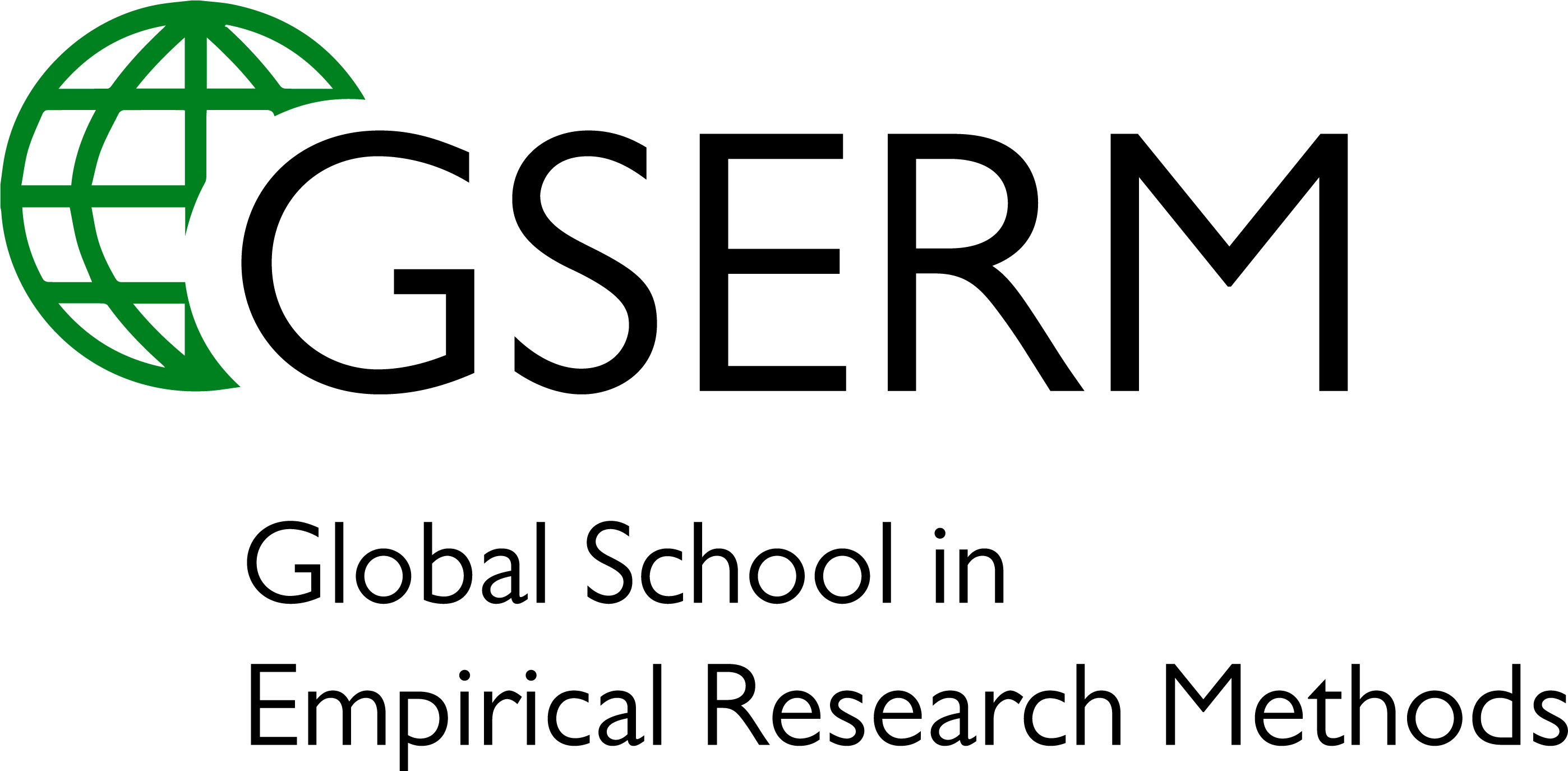
Course
Description
Instructor
Level
Next course
Location
Course
Description
Instructor
Level
Location
Next course
Smart Data-Driven Econometrics
...
A
2023
Smart Data-Driven Econometrics
...


The Global School in Empirical Research Methods offers students, postdocs and practitioners the opportunity to deepen their analytical and methodological skills.
University of St.Gallen | GSERM
Tellstrasse 2 (5th floor)
9000 St. Gallen (Switzerland)
© Copyright 2024 University of St.Gallen, Schweiz